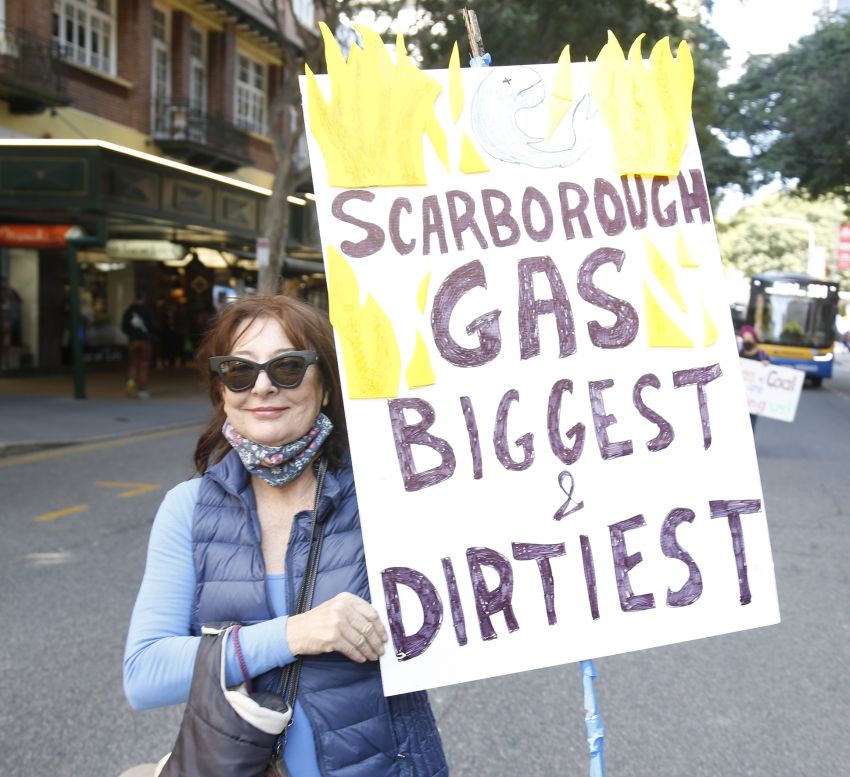
The establishment media proclaimed Labor’s 43% climate target bill on August 4 would bring “an end to the climate wars”.
This is untrue. Labor's carbon emissions target is simply too low. It confirms it is fighting those wars on behalf of the big fossil fuel polluters despite the clear mood for change.
For those thinking a 43% emission reduction is “a start” or “better than nothing”, it is worth remembering a few things.
First, the bill is nothing more than an aspiration. It does not include a mechanism to ensure emissions go down. The only requirement is the government report annually on Australia’s emissions.
Second, the former Coalition government had a 26–28% emissions reduction target, which it claimed it would exceed. Labor’s “extra” cuts are nowhere near ambitious enough.
Third, the Labor government is relying on the same dubious measure of emission reductions as those used by the Coalition. In April last year, the Coalition claimed that emissions had gone down by 19% from 2005 levels when in fact they had risen by 7%, if land use changes are not taken into account.
The John Howard government ensured a special “Australia clause” was incorporated into the United Nation’s 1997 Kyoto Protocol. This meant that emission “reductions” from changes in land use could be included when measuring emission reductions. It went against the spirit of the treaty and favoured Australia due to specific changes in land use in the 1990s and 2000s.
Most importantly, the critical measure to reduce the risk of catastrophic climate disruptions is the phase-out of all fossil fuels. This needs to begin now by ending all new projects and sharply reducing, then eliminating, public subsidies going to fossil fuel corporations.
Shamefully, Labor is promising that both measures will continue under its climate bill. Notably, it is supporting massive new gas developments: the Scarborough gas hub in Western Australia, fracking at Beetaloo in the Northern Territory and, at a smaller scale, at Narrabri in New South Wales.
Any one of these projects, by themselves, is incompatible with a 43% target.
Climate change minister Chris Bowen has dismissed the “Scope 3”, or downstream, emissions from these projects, saying: “Japan doesn’t count the emissions when we drive a Japanese car.” Bowen can only say this because the Paris Accords favour fossil-fuel producing countries, such as Australia.
The real question for those who care about a liveable future is: what can Australia do to reduce its emissions now? Given that it has the highest per capita coal emissions in the G20 and the world, ending fossil fuel production is more important than any other climate measure.
The Anthony Albanese government, like the Coalition, use the “drug dealers’ defence”: if we didn’t sell coal and gas, somebody else would.
This does not stand up because, globally, corporate interests resisting climate action are coordinating. Any defeat for even one of their projects is a boost to those fighting internationally for a liveable climate.
The related claim that Australia’s coal is “cleaner” than other countries is also dubious: about 1% less greenhouse gas is emitted when Australian coal is burnt.
The Greens managed to secure some minor concessions on the climate bill, the most important that the target is explicitly a “floor” not a “ceiling”. This means the target can be raised over time, but it cannot go backwards.
The Greens amendments for a 75% target and for an explicit ban on new gas and coal projects were rejected by Labor, the Coalition and several climate-supporting teal independents.
The Greens were wedged and decided to support the bill, after winning some policy inclusions, including making it harder to fund coal and gas and support for coal and gas workers and communities, including creating publicly-funded “Transition Authorities” to empower local communities to develop and finance plans to create new jobs and diversify their local industries.
Critics of their decision ignore two things.
Negotiating some better policy with Labor allowed the Greens to neutralise Labor’s political attack on them. For weeks leading up to the climate bill, Labor had falsely claimed the Greens were responsible for “almost a decade of inaction” on climate for rejecting Labor’s 2009 emissions trading scheme (the CPRS, that was also known as the Continue Polluting Regardless Scheme).
In fact, a new law was not needed for Labor’s 43% target to become official: before parliament even resumed the government had already notified the United Nations of its new target.
Had the Greens voted against the climate bill, the official target would have remained unchanged. Tactically, Labor would have been given a big opening to continue its Green-bashing, especially in the union movement where it faces a challenge from the Greens.
This would have confused a lot of progressives, making it harder to build the street-based movements we need to stop new coal and gas projects and for a just transition.
The Greens did not compromise on their policy: they repeated that a higher emissions target is needed and new fossil fuel projects make a mockery of the 43% target. This has led to questions being asked about how Labor intends to meet its target.
Arguably, the Greens’ tactics on this bill (“round one”) denied Labor an opportunity to wedge the Greens further. Importantly, it gives climate defenders a bigger opening to talk to and involve Labor’s base in resisting climate vandalism.
[Alex Bainbridge is a member of the Socialist Alliance national executive.]